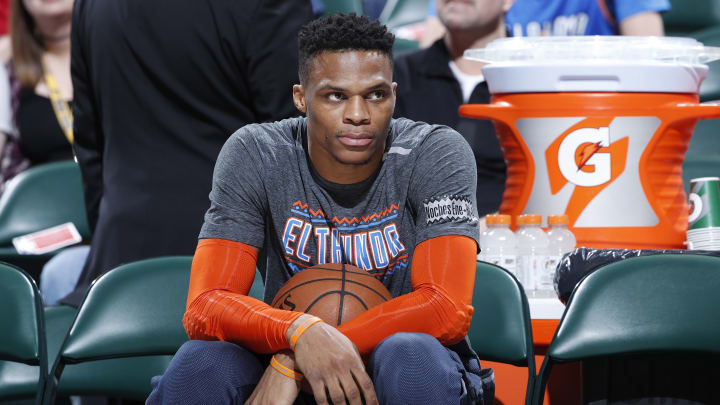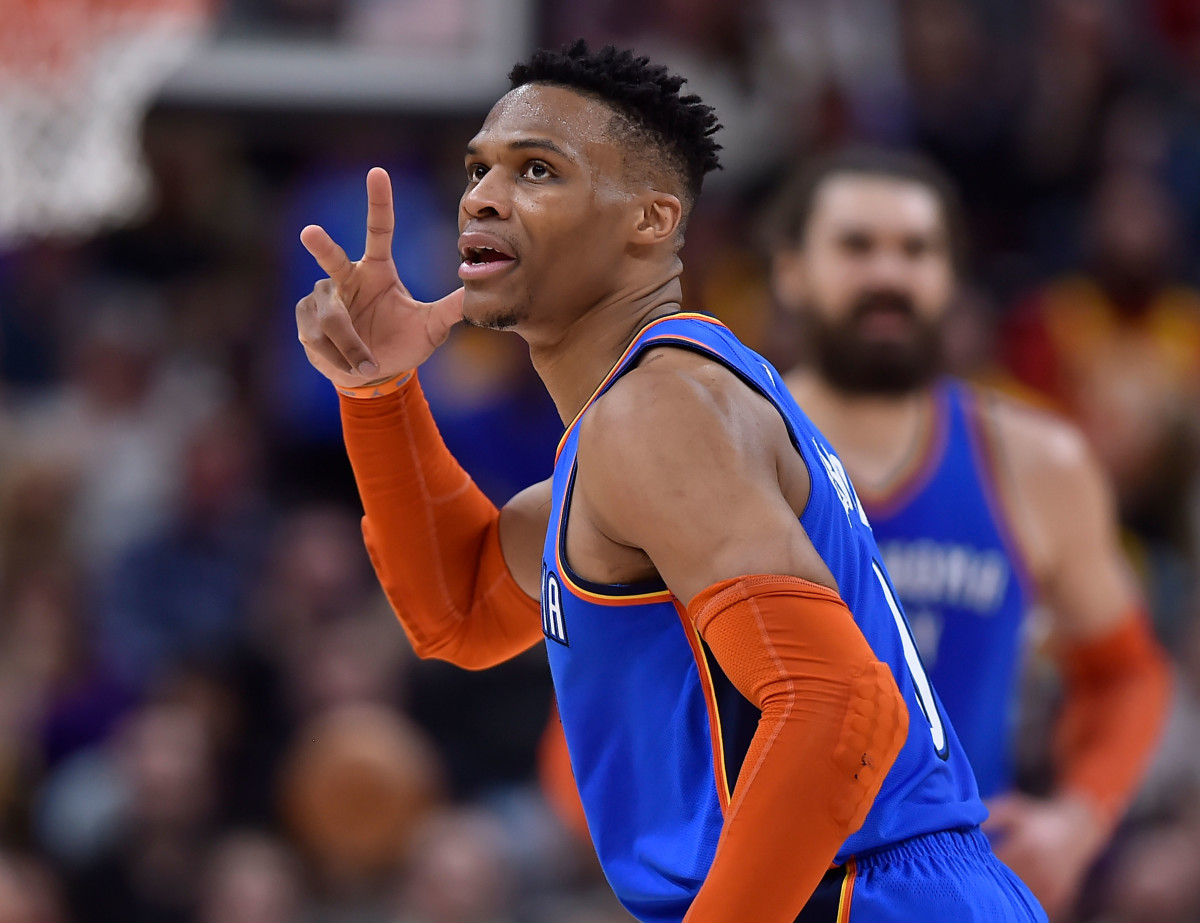Heckling Can Be Fun. It’s Up to NBA Fans to Keep It That Way

BOSTON — In the aftermath of an ugly incident between a fan in Utah and Russell Westbrook—an altercation that resulted in Westbrook being lighter $25,000 and the fan banned from Jazz games for life—the NBA sent a league-wide memo out encouraging to create a PSA to stress the “importance of respect and civility in NBA arenas,” The Athletic first reported.
If you are a fan that needs to see a spot like that to curb unruly behavior, you don’t belong in an arena anyway.
Here’s the thing about heckling: At its best, it’s fantastic. Home court advantage isn’t restricted to cheers and boos. There’s a place for creative and well-placed heckles. Last month, with the Anthony Davis trade rumors swirling, Pacers fans started chantingLeBron’s going to trade you at Brandon Ingram when Ingram stepped to the free throw line. Last season, Boston fans chantedNot a rookie at eventual Rookie of the Year Ben Simmons, a nod towards the fact that technically Simmons was a second-year player.

Remember Robin Ficker? In the '80s and '90s, Ficker was the NBA’s most notorious heckler. A die-hard Washington Bullets fan, Ficker was renowned for his creativity. From his seat behind the visitors bench, Ficker crawled under Phil Jackson’s skin by reading aloud sections of Jackson’s autobiography. Isiah Thomas once got so unnerved by Ficker’s chatter that he threw a shoe at him. In 1993, Charles Barkley flew Ficker to Phoenix for the Finals, with the hope that Ficker could get under Michael Jordan’s skin. In a story for The New York Times in 2004, Ficker—who says he drew inspiration for his trash talk from Muhammad Ali, who Ficker had a friendly relationship with—said he had rules: No drinking, no swearing, no racial or sexual comments, and no comments about children.
Within those parameters, heckling is fine. Some players actually enjoy a creative heckle. No story about Reggie Miller’s career is complete without including his infamous battles with Knicks super fan Spike Lee. Former NBA forward Brian Scalabrine laughed recently when he remembered a fan in Philadelphia who brought a white board to games and caught players eyes with creative comments.
Sam Cassell: You were great in Aliens 1 and 3—what happened in 2?
Scalabrine: No points, no rebounds = Waivers.
Too often though, heckling crosses the line. Rudy Gobert likened some experiences to being in a zoo, with fans believing that paying for tickets gives them the right to do whatever they want. Westbrook is a frequent target. Remember the fan in Philadelphia, in 2016, who flipped a pair of middle fingers at Westbrook when Westbrook stopped a few feet away from him? Westbrook handled that situation well. In Utah, Westbrook went too far when he threatened a heckler’s wife, but the Jazz confirmed Westbrook’s version of the story, that the fan’s comments were extremely vulgar, and across the NBA players quickly backed him.
"Obviously Russ is a very passionate guy, but Russ is married with three kids,” LeBron James said. “A set of twins. And no matter if you like him or love him, or the way he plays the game, the guy is one of the most loyal people I know, one of the most down to earth guys that I know and that guy just took it too far on the other end. They could have missed some words, Russ could have said it a little bit differently, but at the end of the day he was right and the guy was wrong.”
Added Jayson Tatum, “People always expect us to turn the shoulder. And we get paid all this money, we should be able to let them talk to us any kind of way, and that’s just not true. For the most part, we do a good job of letting go and running out the other way but what that person said was tough. It was out of line and very disrespectful to who he was as a person. We’ve all been out there. You’ve got to stand up for yourself.”

The NBA isn’t likely to take any further steps beyond encouraging teams to increase awareness. NBPA Executive Director Michele Roberts told ESPN she would like to see a zero tolerance policy, and in-game security will undoubtedly be sensitive to what is coming from the stands for the rest of the season.
“I do know that 99% of the interactions with fans are either very lighthearted or don’t cross the line,” Celtics coach Brad Stevens said. “But there are some that have, and I feel for the guys, because they’re right there. We talk about how close the fans are to the benches and it’s even more so in the NBA. I don’t go down to the end of the bench very often, but oftentimes there’s people literally sitting on the end of your bench. There certainly is in the front.”
In truth, the best way to curb this issue is for fans to police themselves. Does anyone really think cursing at a player is funny? Or that vulgar comments are especially clever? Downing six beers before halftime doesn’t give anyone the right to slur whatever they want at players on the floor.
Besides—fans should want to protect the NBA viewing experience. As Stevens notes, the NBA offers the best in-game experience in sports. There are no barricades between fans and the floor, like in hockey. There’s virtually no distance between them and the players, like in baseball and football. The Westbrook incident won’t push the league towards any significant changes, but an escalated one, like the Pacers-Pistons fan-fueled brawl in 2004 might.
There is one less fan with access to Jazz games, and imagine being that big a buffoon that the team you support no longer wants you back. There will always be interactions between players and fans. Clean, creative ones are part of home court advantage. Cross the line, and you are a loser who deserves to be sent home.
